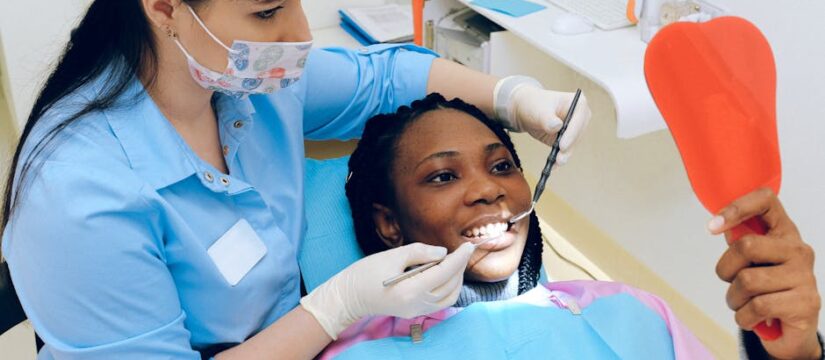
What is a dental restoration?
A dental restoration is a treatment to fix a tooth that has decayed, is damaged, or has been weakened. It helps restore the tooth’s function and shape, preventing further decay. Dental restorations can be done with materials like fillings, crowns, bridges, or implants. The goal is to protect the tooth and maintain your overall oral health.
Common reasons for needing dental restoration
When you might need dental restoration, it’s often due to decay, fractures, chips, discoloration, or tooth loss. These issues can impact your oral health and aesthetics, making restoration necessary for maintaining a healthy smile.
Signs that indicate you may need dental restoration
If you have persistent tooth pain, sensitivity to hot or cold foods, visible chips or cracks in your teeth, swelling or tenderness in your gums, or if you notice your teeth looking shorter or more worn down, these are signs that indicate you may need dental restoration. It is important to consult with a dentist if you experience any of these symptoms to address any potential dental issues promptly.
Types of dental restoration procedures
Dental restorations come in various types to address different dental issues. Here are common dental restoration procedures to consider:
- Fillings: Used to repair small cavities caused by decay. Fillings can be made of silver amalgam, gold, or tooth-colored composite resin.
- Crowns: Also known as caps, crowns are used to cover and protect damaged or weak teeth. They can be made from porcelain, metal, or a combination of materials.
- Bridges: Used to replace missing teeth by anchoring artificial teeth to neighboring natural teeth. Bridges help restore your smile and chewing function.
- Dental Implants: A long-lasting solution to replace missing teeth. Implants are surgically placed into the jawbone and act as replacements for tooth roots.
- Dentures: Removable appliances that replace missing teeth and surrounding tissues. Dentures can be full or partial, depending on the number of teeth missing.
These procedures can restore both the function and appearance of your teeth, improving your overall oral health.
How to prepare for a dental restoration
Discuss with your dentist the type of restoration needed and the procedure involved. Understand the cost implications and potential insurance coverage for the restoration. Prepare for any necessary dental imaging or impressions before the restoration. Follow any pre-procedure instructions provided by your dentist. Ask about potential post-treatment care and follow-up appointments.
The process of getting a dental restoration
When you need a dental restoration, your dentist will begin by examining your teeth and discussing the best options for you. The process typically involves several steps, including:
- Initial assessment: Your dentist will assess the condition of your teeth and determine the type of restoration needed.
- Preparation: If necessary, your dentist will prepare the affected tooth by removing any decay or old fillings.
- Impression: An impression of your tooth will be taken to create a custom restoration that fits perfectly.
- Placement: The restoration will be carefully placed and bonded to your tooth for a seamless look and proper function.
- Follow-up: Your dentist may schedule a follow-up appointment to ensure the restoration is comfortable and functioning well.
Recovery and aftercare for dental restoration
After getting a dental restoration, it’s important to take care of your mouth to ensure proper healing. Here are some general guidelines to follow:
- Avoid eating hard or sticky foods that can damage your restoration.
- Maintain good oral hygiene by brushing and flossing regularly.
- Attend follow-up appointments with your dentist as recommended.
- Be mindful of any pain or discomfort and contact your dentist if you experience any unusual symptoms.
- Follow any specific instructions provided by your dentist for your individual case.
Benefits of dental restoration
Dental restorations can improve the appearance and function of damaged teeth, helping you regain a confident smile. By restoring your teeth, you can enhance your oral health and prevent further decay or damage. Some benefits of dental restorations include:
- Improved appearance: Restorations can restore the natural look of your teeth, making them appear healthy and attractive.
- Enhanced chewing: Restoring damaged teeth can improve your ability to chew food properly, allowing for better digestion.
- Prevention of dental issues: Restorations can help prevent further decay or damage to your teeth, potentially saving you from more extensive treatments in the future.
- Boost in confidence: Having a restored, healthy smile can boost your self-esteem and confidence in social situations.
- Long-term cost savings: Addressing dental issues promptly through restorations can prevent more costly treatments down the road.
Cost considerations for dental restoration
Dental restorations can vary in cost depending on the type of restoration needed. Here are a few cost considerations to keep in mind:
- The price of dental restorations can be influenced by the complexity of the procedure and the materials used.
- Factors such as the location of the dental clinic and the expertise of the dentist can also affect the overall cost.
- It’s essential to consult with your dentist to get a clear breakdown of the expenses involved in your specific dental restoration needs.
Conclusion: Taking care of your dental health
Remember, taking care of your dental health is essential to prevent more significant issues down the line. By visiting your dentist regularly, practicing good oral hygiene, and being aware of the signs that indicate you may need a dental restoration, you can maintain a healthy and happy smile for years to come. Don’t ignore any potential problems and always seek professional advice if you have concerns about your dental health. Your smile is worth the effort!
